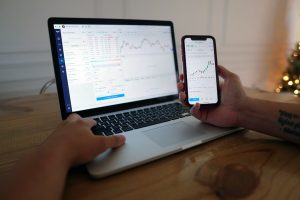Foreign exchange, or Forex, trading is a crucial aspect of the global economy. It is a market where currencies are traded, one against the other, in real-time. As such, it is a vital mechanism for managing the international trade, investment, and finance of countries worldwide. Banks are significant players in the Forex market, and it is essential to explore why they engage in forex trading.
Firstly, banks trade Forex to facilitate international trade. Businesses that trade globally need to exchange currencies to conduct transactions. For example, a company in the United States that imports goods from China must pay the Chinese company in Chinese Yuan. This requires the U.S. company to exchange its U.S. dollars for Chinese Yuan. Banks facilitate these transactions by providing currency exchange services, which includes Forex trading.
Secondly, banks trade Forex to manage their foreign currency exposure. Banks hold assets and liabilities denominated in various currencies, and exchange rate fluctuations can significantly impact their profitability. Therefore, banks engage in Forex trading to hedge against potential losses resulting from currency fluctuations. By trading in the Forex market, banks can lock in exchange rates, thereby reducing their foreign currency exposure.
Thirdly, banks trade Forex to generate profits. Forex trading is a highly lucrative business, and banks can earn significant profits by trading in the market. Banks leverage their resources, including their expertise, technology, and access to liquidity to trade currencies profitably. Banks also earn profits from the bid-ask spread, which is the difference between the buying and selling prices of a currency pair.
Fourthly, banks trade Forex to support their clients’ Forex needs. Banks offer Forex trading services to their clients, including individuals, corporations, and other financial institutions. The banks facilitate their clients’ Forex trading needs by providing access to the market, executing trades, and providing market information and analysis. Banks earn fees and commissions by providing these services.
Finally, banks trade Forex to support central bank operations. Central banks around the world engage in Forex trading to manage their foreign exchange reserves, influence exchange rates, and support their monetary policies. Banks act as intermediaries for central bank Forex transactions, which can involve buying or selling currencies in the market.
In conclusion, banks engage in Forex trading for various reasons, including facilitating international trade, managing foreign currency exposure, generating profits, supporting clients’ Forex needs, and supporting central bank operations. Forex trading is a crucial aspect of the global economy, and banks play a significant role in the market. Banks leverage their resources, including expertise, technology, and access to liquidity, to trade currencies profitably and provide Forex trading services to their clients. As such, banks will continue to play a vital role in the Forex market for the foreseeable future.





